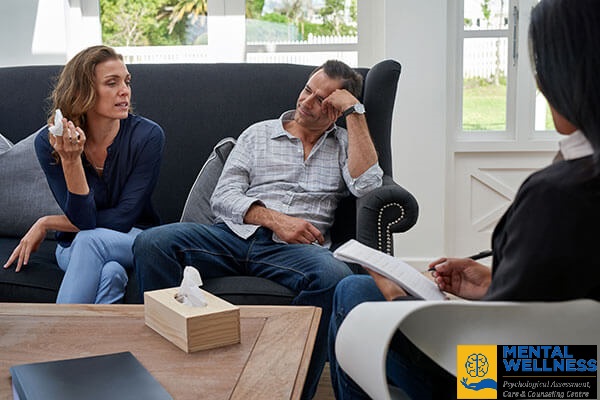
Couples in Singapore frequently misunderstand relationship counselling and therapy services, often viewing them as a last resort or a sign of failure. These misconceptions prevent people from seeking the support they need to strengthen and sustain their relationships. In reality, relationship counselling, couple counselling, and marriage counselling provide essential skills for healthier communication, trust-building, and conflict resolution. Here, we clarify some of the biggest myths surrounding relationship counselling in Singapore.
Counselling is a Sign of a Failing Relationship
One of the largest misconceptions about relationship counselling in Singapore is that it signifies a relationship in crisis. Many couples avoid seeking professional help because they worry it implies their relationship is beyond repair. In truth, seeking couple counselling is a proactive choice that shows a commitment to improving and strengthening the partnership. In many cases, couples therapy serves as a preventive measure, equipping partners with essential tools to navigate future challenges. Far from indicating failure, counselling suggests a desire to grow together, fostering a more resilient, understanding relationship.
Only Married Couples Need Counselling
Another mistaken belief is that counselling services are exclusively for married couples facing marital issues. In reality, couples therapy in Singapore is available for people at any stage of a relationship, whether they’re dating, engaged, or married. Challenges can arise at any point, and addressing them early through couple counselling can prevent issues from escalating. The objective of counselling is to provide a safe space for partners to communicate effectively, resolve conflicts, and understand each other’s perspectives, ultimately strengthening the foundation of their relationship.
Counselling is Only for Serious Problems
Some people believe that relationship counselling should be reserved for severe issues, such as infidelity or significant trust breaches. However, couples counselling Singapore-wide also supports those experiencing minor conflicts, communication barriers, or general dissatisfaction. Counselling can help couples improve communication, express feelings constructively, and establish healthier relationship patterns. By tackling smaller issues early, couples often find they can avoid more serious problems later. Couples therapy in Singapore is designed to handle a broad range of relational challenges, both minor and major.
Therapists Will Take Sides
There’s a misconception that counsellors may favour one partner over the other, creating a bias that intensifies conflict. Professional therapists conducting couples therapy are trained to remain impartial, focusing on facilitating balanced conversations and understanding each partner’s perspective. The goal of marriage counselling in Singapore is not to assign blame but to guide couples toward mutual understanding and shared solutions. Rather than taking sides, therapists provide strategies that empower both partners to work collaboratively on the relationship.

Counselling is Just Talk Therapy
Many people think relationship counselling is simply a matter of talking about feelings without producing tangible results. On the contrary, couples therapy involves a structured approach where therapists introduce actionable strategies and exercises. These tools aim to improve specific relationship areas, such as conflict resolution, emotional management, and active listening. During marriage counselling sessions, Singapore therapists work with couples to create actionable goals and practice skills that can be applied in daily interactions. Counselling is as much about building practical skills as it is about open communication.
Counselling Can’t Change Anything
A prevalent myth is that counselling is ineffective, with sceptics believing it cannot truly transform a relationship. While it’s true that no quick fix exists for deep-rooted issues, relationship counselling offers the techniques and support necessary for gradual, meaningful improvement. Success in counselling largely depends on partners’ willingness to engage and apply what they learn. Couples who commit to the process find that counselling can facilitate lasting changes, enabling them to communicate more effectively, rebuild trust, and nurture a happier partnership.
Conclusion
Relationship counselling, couple counselling, and marriage counselling in Singapore provide valuable insights and tools for couples at any stage of their relationship. By breaking down these myths, individuals can make informed choices about seeking professional support to enhance communication, strengthen bonds, and develop healthier relationship dynamics.
For more information about relationship counselling solutions, contact Eagles Mediation Counselling Centre today.




